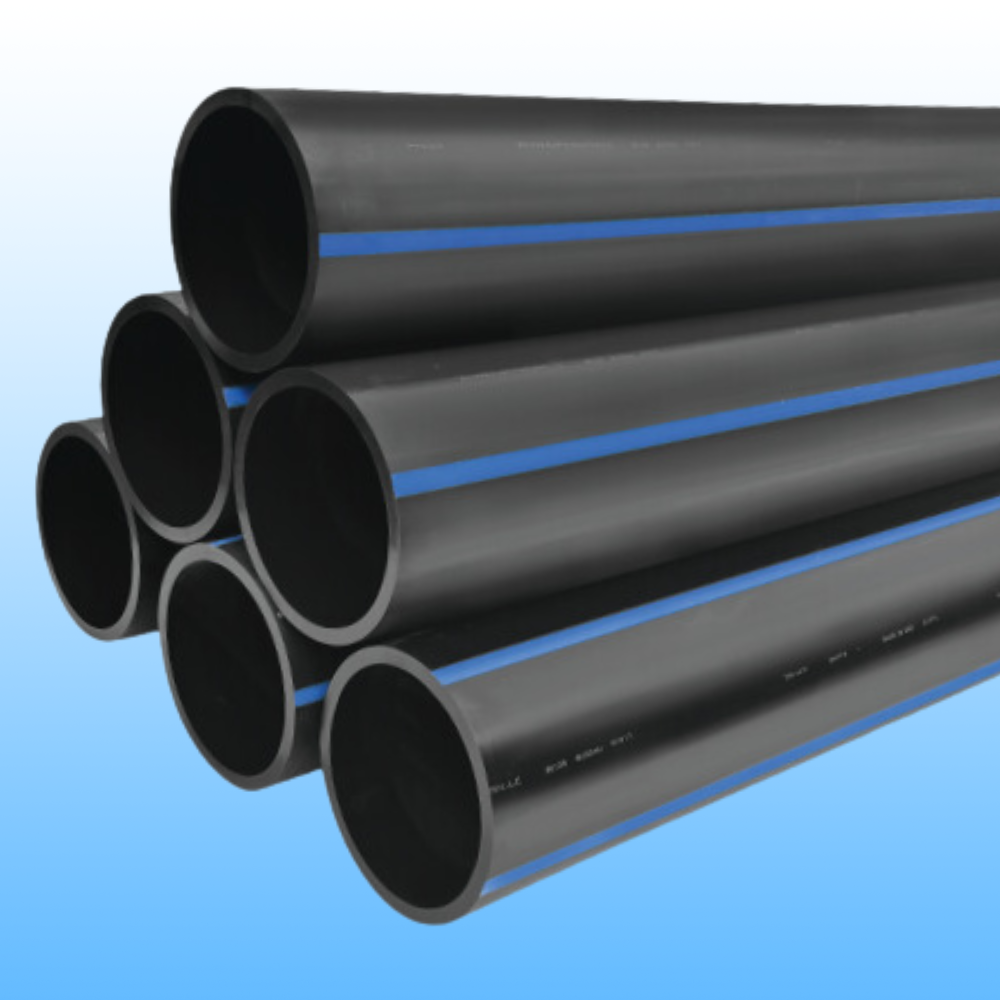The Innovation of American Plastics HDPE Pipe Manufacturing: What You Need to Know
Wiki Article
Recognizing the Secret Advantages of HDPE Pipe for Water and Wastewater Administration
The usage of HDPE pipeline in water and wastewater administration provides many benefits that warrant factor to consider. Its remarkable durability and lengthy life-span make it a preferred choice for numerous tasks. Furthermore, the product's resistance to corrosion and chemical damages improves its dependability in various environments. Nevertheless, the benefits prolong beyond just durability and resistance. Exploring its cost-effectiveness and environmental impact discloses much more engaging reasons for its prevalent adoption in modern-day facilitiesOutstanding Sturdiness and Longevity

HDPE pipeline attracts attention for its extraordinary durability and long life, making it a preferred option in water monitoring systems. Constructed from high-density polyethylene, these pipes can hold up against substantial stress and stress and anxiety, guaranteeing trustworthy efficiency with time. Their durable nature permits them to withstand severe ecological problems, including temperature level fluctuations and dirt motions, which can trigger various other materials to stop working.
The lifespan of HDPE pipelines typically goes beyond 50 years, supplying a cost-effective remedy for towns and sectors alike. In addition, the product's light-weight residential or commercial properties simplify installation, decreasing labor prices and durations. This resilience minimizes the requirement for regular fixings or substitutes, further boosting its financial charm.
In water monitoring applications, the integrity of HDPE pipelines means less interruptions and improved service continuity, making them indispensable to sustainable infrastructure growth. The mix of durability and durability strengthens HDPE's role as a foundation in effective water monitoring services.

Resistance to Rust and Chemical Damages
While many materials catch rust and chemical damages in time, HDPE pipelines show remarkable resistance, making them suitable for various water administration applications. This durability originates from the molecular structure of high-density polyethylene, which is naturally non-reactive and does not corrode like metals or weaken from exposure to extreme chemicals. As a result, HDPE is extremely effective in environments with aggressive compounds, such as wastewater systems that might have acids, bases, and organic solvents.
In addition, HDPE pipelines can withstand environmental factors such as soil level of acidity and saline conditions, additionally boosting their viability for varied applications (Texas hdpe pipe manufacturer). Their ability to keep structural integrity over time decreases the threat of leakages and failures, which is crucial in making certain the safety and security and integrity of water circulation and wastewater monitoring systems. The resistance to rust and chemical damages substantially adds to the general effectiveness and long life of HDPE piping options.
Cost-Effectiveness and Economic Benefits
When taking into consideration the monetary ramifications of water management systems, the cost-effectiveness of HDPE pipelines becomes obvious. These pipes provide reduced installation and upkeep prices compared to standard materials like steel or concrete. Their lightweight nature simplifies transport and installation, leading to reduced labor costs. Additionally, HDPE pipes display a lengthy lifespan, commonly going beyond 50 years, which equates to less substitutes and lasting savings.The resistance of HDPE to corrosion and chemical damages reduces the demand for pricey repairs and replacements. The pipes also support effective water flow, minimizing energy costs related to pumping systems. By reducing leakages and water loss, HDPE pipelines add to significant economic advantages for communities and sectors alike. Overall, the first financial investment in HDPE piping can generate considerable economic returns over the lifespan of the water administration system, making it a sensible option for lasting infrastructure advancement.
Ecological Sustainability and Lowered Impact

Convenience and Adaptability in Setup
As a result of their distinct properties, HDPE pipelines supply amazing convenience and flexibility in setup, making them appropriate for a variety of applications. Their lightweight nature permits simpler handling and transportation, decreasing labor expenses and installment time. HDPE pipes can be bent and formed to fit various surfaces and project needs, which is especially beneficial in challenging environments.Furthermore, their resistance to rust and chemical damages permits installment in varied setups without the demand for specialized safety coatings. The capability to fuse joints produces a constant, leak-free system, improving the general stability and integrity of the installment. HDPE's adaptability additionally suits ground motion, minimizing the danger of damages in areas prone to shifting dirt. Overall, these qualities make HDPE pipes not only functional but also a favored choice for water and wastewater monitoring systems.
Often Asked Concerns
How Does HDPE Pipe Contrast to PVC in Water Administration Applications?
HDPE pipeline uses remarkable adaptability, resistance to rust, and toughness contrasted to PVC. Its lighter weight assists in less complicated setup, while its lengthy life-span minimizes substitute expenses, making HDPE a recommended selection in water monitoring applications.What Is the Lifespan of HDPE Water Lines Under Normal Problems?
Under typical conditions, HDPE pipes can have a lifespan ranging from 50 to 100 years. Their resilience and resistance to corrosion contribute to their long-lasting efficiency in various applications, making them a trustworthy selection for framework.Are HDPE Water Lines Recyclable After Their Life Span?
Yes, HDPE pipelines are recyclable after their service life. custom hdpe pipe manufacturing Midland TX. They can be processed and repurposed right into new products, greatly lowering environmental effect and promoting sustainability within the industry, making them an environmentally friendly selection for piping solutionsWhat Is the Installation Refine for HDPE Pipes?
The installation procedure for HDPE pipes involves site prep work, trenching, pipeline combination or mechanical signing up with, backfilling, and pressure screening. Correct strategies guarantee a long lasting and efficient system for transporting water and wastewater properly.Can HDPE Water Lines Be Made Use Of for Both Safe And Clean and Non-Potable Water Systems?
Yes, HDPE pipes can be made use of for both safe and clean and non-potable water systems. Their adaptability, durability, and resistance to deterioration make them ideal for various applications, making certain risk-free and reliable transport of water in Pipe Supplier American Plastics Midland different contexts.Report this wiki page